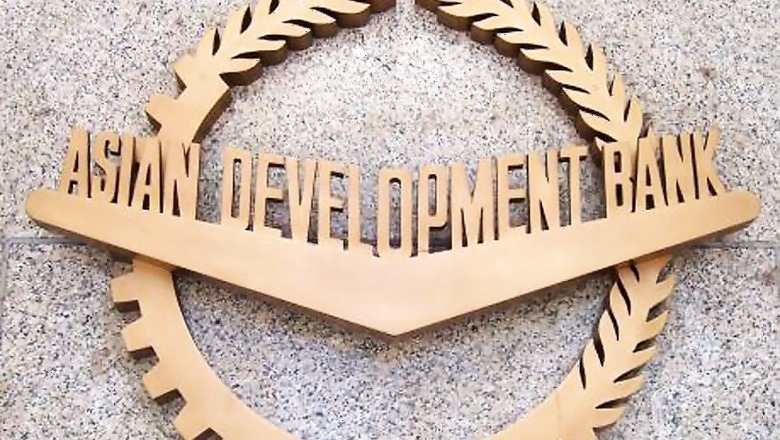
views
Islamabad: In a huge embarrassment for the Pakistan government, the ADB (Asian Development Bank) has distanced itself from the "premature announcement" of Prime Minister Imran Khan's adviser that the global lender would provide a loan of 3.4 billion US Dollars to the cash-strapped nation, saying "discussions are ongoing".
The rare rebuff by the Philippines-headquartered institution came a day after Khan's adviser on finance Abdul Hafeez Shaikh and Federal Minister for Planning, Development and Reforms Khusro Bakhtiar announced that the country would get a loan of 3.4 billion dollars for budgetary support, out of which USD 2.1 billion would be released within a year.
The Asian Development Bank (ADB's) stance taking the rare step on a public holiday to issue a statement assumes significance as the cash-strapped country is trying to overcome a ballooning Balance-of-Payments (BoP) crisis that threatens to cripple its economy.
In its statement, the ADB confirmed the meetings with the government members and discussions on loans. "These discussions are ongoing and details of the plans as well as the volume of ADB's financial support, once finalised, will be contingent upon the approval of ADB management and its Board of Directors," ADB's Country Director for Pakistan, Xiaohong Yang was quoted as saying by Dawn news on Monday.
The ADB said it was "discussing with the GoP (Government of Pakistan) plans to provide budget support programmes, results-based and project assistance to help improve Pakistan's competitiveness and fiscal sustainability".
It said that the bank could help the government manage external debt and BoP crisis, and maintain the momentum of macroeconomic and structural reforms to support economic stability and expansion. "ADB is pleased with the progress of discussions with the government of Pakistan on these issues," the statement added.
Sources here said "the ADB management was embarrassed by the government's premature announcement about the ongoing discussions on loan programme which the bank had not even taken up with its board of directors and had to take an extraordinary step to downplay the discussions".
The ADB delegation which had met Shaikh was also not authorised at its own to finalise any loan programme that normally involved long-drawn discussions, the report said. Moreover, the ADB had also linked its loans for budgetary support to the approval of USD 6 billion bailout package from the International Monetary Fund (IMF) for a 39-month reforms programme, it said.
The sources said that the statements by the two senior Cabinet members focused on the exchange rate as the Pakistani rupee has been losing its value against the UD dollar for over a year with no let-up.
Last month, it reached an agreement in principle with the IMF for a three-year, USD 6 billion bailout package aimed at shoring up its finances and strengthening a slowing economy.
In April, three influential US lawmakers urged the Trump adminstration to oppose the proposed multi-billion bailout package being sought by Pakistan from the IMF arguing it could be used to repay the Chinese debt.
China is investing heavily in Pakistan under the USD 60 billion China-Pakistan Economic Corridor (CPEC). Launched in 2015, the CPEC is a planned network of roads, railways and energy projects linking China's resource-rich Xinjiang Uyghur Autonomous Region with Pakistan's strategic Gwadar Port on the Arabian Sea.
The US has serious reservations over global lenders like the IMF providing a bailout to Pakistan to pay off Chinese debts.
Secretary of State Mike Pompeo in the past warned that any potential IMF bailout for Pakistan should not provide funds to pay off Chinese lenders, saying "we will be watching what the IMF does... there is no rationale for IMF tax dollars and associated with that American dollars that are part of the IMF funding, for those to go to bail out Chinese bondholders or China itself".




















Comments
0 comment